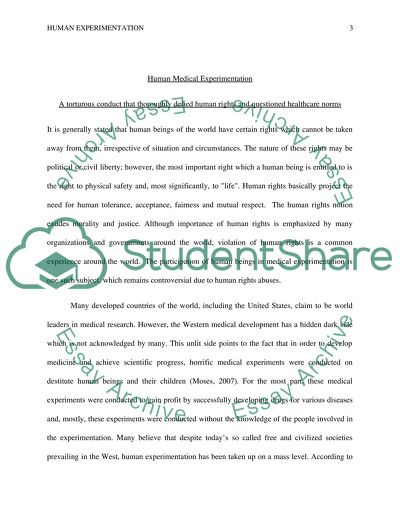Cite this document
(“Human Experimentation Essay Example | Topics and Well Written Essays - 2500 words”, n.d.)
Retrieved de https://studentshare.org/nursing/1403800-treatment-of-torture-survivors-of-world-war-two
Retrieved de https://studentshare.org/nursing/1403800-treatment-of-torture-survivors-of-world-war-two
(Human Experimentation Essay Example | Topics and Well Written Essays - 2500 Words)
https://studentshare.org/nursing/1403800-treatment-of-torture-survivors-of-world-war-two.
https://studentshare.org/nursing/1403800-treatment-of-torture-survivors-of-world-war-two.
“Human Experimentation Essay Example | Topics and Well Written Essays - 2500 Words”, n.d. https://studentshare.org/nursing/1403800-treatment-of-torture-survivors-of-world-war-two.


